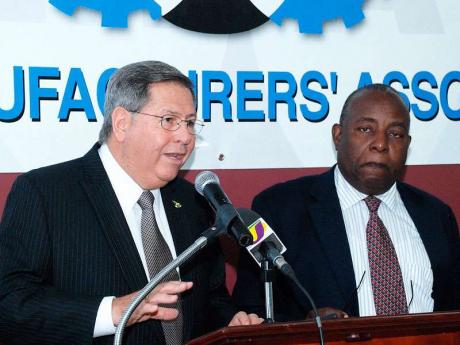Manufacturers question 'intrusive and costly' AEO conditions
The special status granted to qualified importers, called the Authorised Economic Operator (AEO), is built on a certain level of trust that companies will honestly describe and declare the goods being shipped. However, the Customs Department requires importers to satisfy conditions that allow it to monitor their conformity to the programme.
Last week, manufacturers said the authorities have gone too far in their stipulations, and that they now find it too costly to maintain their AEO status. It followed a request from Customs that importers install surveillance cameras at their warehouses. Customs is also reportedly seeking disclosures about the suppliers of goods.
"I think we are better off not having the AEO status," declared Anthony Hyde, past president of the Jamaica Manufacturers' Association (JMA) and chairman of Air Watt Manufacturers Limited.
"The benefits pale in comparison to the hassle that we have to go through," Hyde said at the JMA's annual general meeting on Wednesday.
President of the JMA, Brian Pengelley, said Customs has made several proposals to change the existing system that will require "huge" investment by the importers, specifically the requirement to install special security system to protect the unchecked goods that the importer is allowed to store at their private premises.
Obligation to declare
Importers are granted AEO status if they are considered 'low risk'. But the designation comes with the obligation to declare accurate values, secure business premises, comply with revenue protection, provide documents to Customs and access to premises when required, and work with post-clearance audit personnel.
Also, AEO goods will not necessarily be subjected to preclearance examination, provided that there are no discrepancies in relation to the documents submitted.
Hyde said he no longer considers the AEO a privilege, because the requirements to maintain it had become too intrusive.
"I don't see why Customs would want to tell me to install special security system in my own warehouse. Customs is responsible for the ports. I don't see how it is that Customs wants to involve themselves in how I run my business," he said.
Pengelley, who was re-elected president of the JMA on Wednesday, said security is one of the biggest costs to manufacturers and it is unreasonable for Customs to mandate what essentially amounts to an increase in the cost of business, "especially in these harsh economic times".
However, the manager for the incentive unit at Customs, Brian Andrews, said the security systems are necessary for AEO holders, saying the importers needed systems in place to secure their unchecked goods.
Hyde countered that the manufacturers have proper records that can be made accessible to the Customs Department, which should "clearly show the trail for every imported item".
Hyde also complained that Customs had "gone overboard" in its demand that he provides information on his suppliers or be penalised.
Andrews acknowledged that this could be counterproductive to business, and said such issues would be re-examined by the Customs Department when they review proposals on the AEO programme.
The AEO system, which falls under the Customs risk management and post-clearance audit programme, is aimed at encouraging voluntary compliance and rewarding low-risk importers.
Breach of its requirements could result in the importer being redesignated an Unauthorised Economic Operator, requiring the importer to go through the regular checks when clearing goods at the ports.

